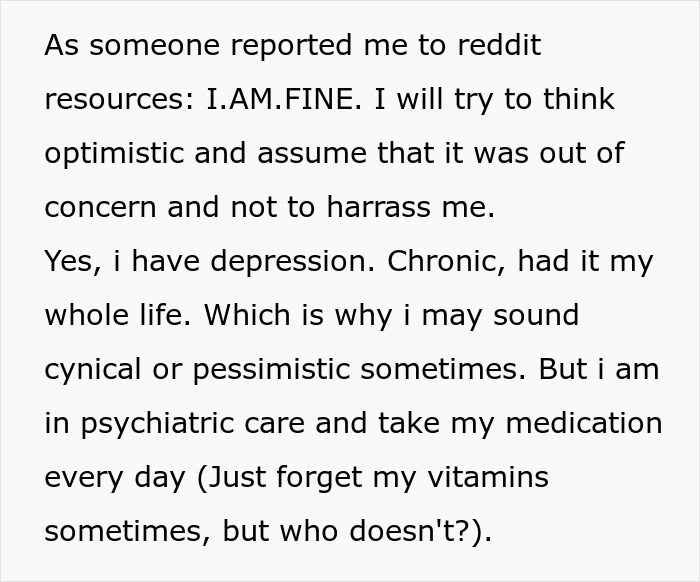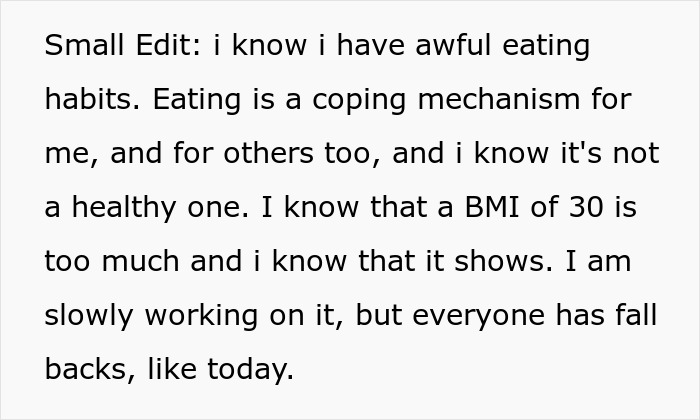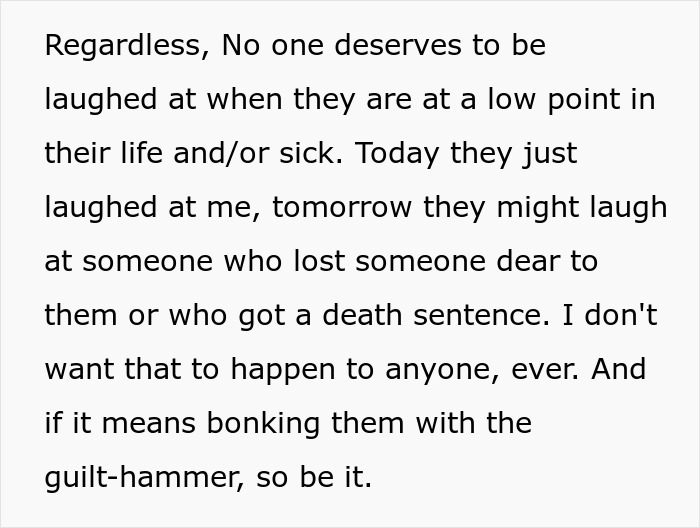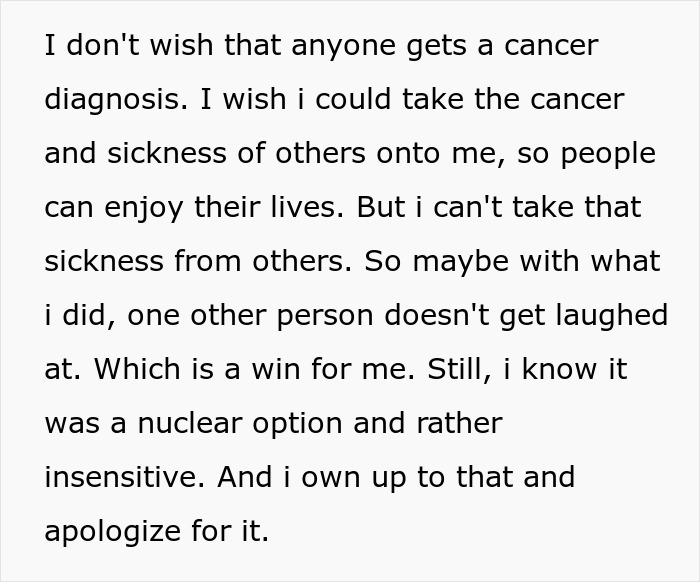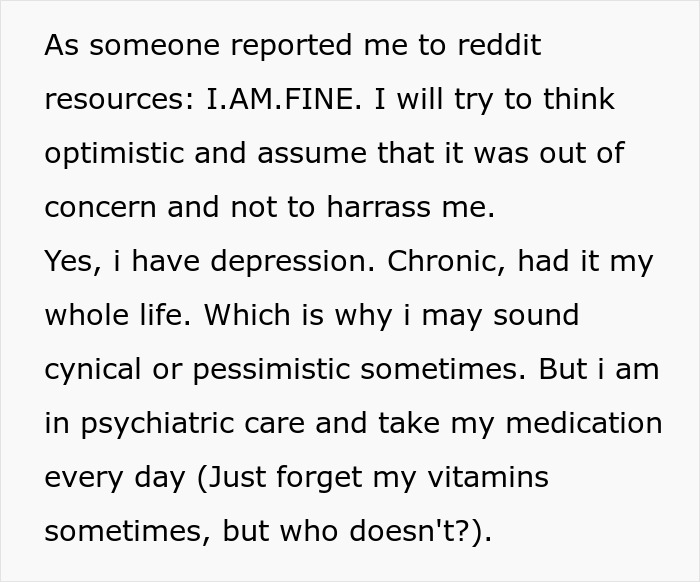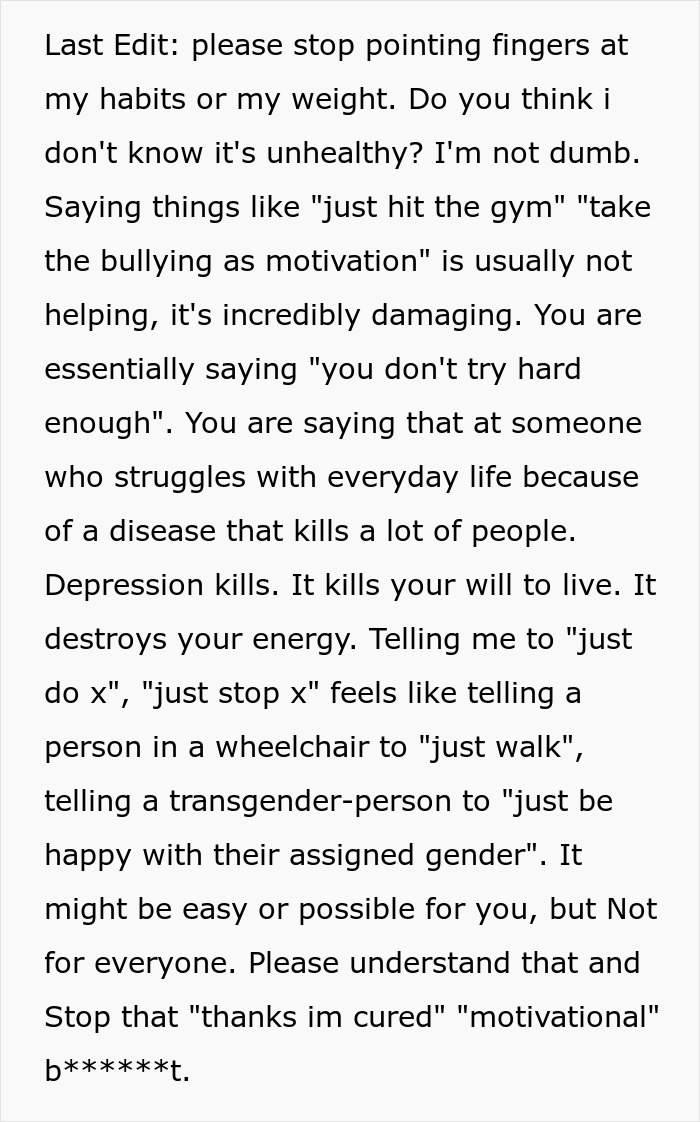“Unseen Battles: How One Woman’s Bold Encounter Turned Rude Teens into Compassionate Allies”
Some teenagers have the tendency to be nasty and think little of the impact of their words or actions
Image credits: monkeybusiness / envato (not the actual photo)
When an overweight shopper was taunted by a bunch of mean teens, they decided to teach the boys a lesson
Image credits: Denny Müller / unsplash (not the actual photo)
Image credits: AikarieCookie
“Obesity is a disease, not a behavioral choice”: an expert explains
Body Mass Index or BMI is a measure of someone’s body fat based on their height and weight. Your BMI tells you whether you are at what’s considered a healthy weight or not. To calculate it, you take your weight in kilograms, divide it by your height in meters squared, and round it off to one decimal place.
You’ll fall into one of five categories. Anything under 18.5 is underweight, while normal weight is 18.5–24.9. If your BMI is 25–29.9, you’re considered overweight. And if it’s above 30, you fall into the obesity category. A BMI of 40 or more means you have severe obesity.
The World Health Organization notes that obesity is “a chronic complex disease defined by excessive fat deposits that can impair health.” The organization adds that obesity can cause a range of other health issues like increased risk of type 2 diabetes, heart disease, certain cancers, decreased bone health and reproduction.
Obesity also affects the daily lives of those living with it. Sleeping, and even moving around, can become a burden. But experts say people don’t just wake up one day and decide to be overweight or have obesity.
